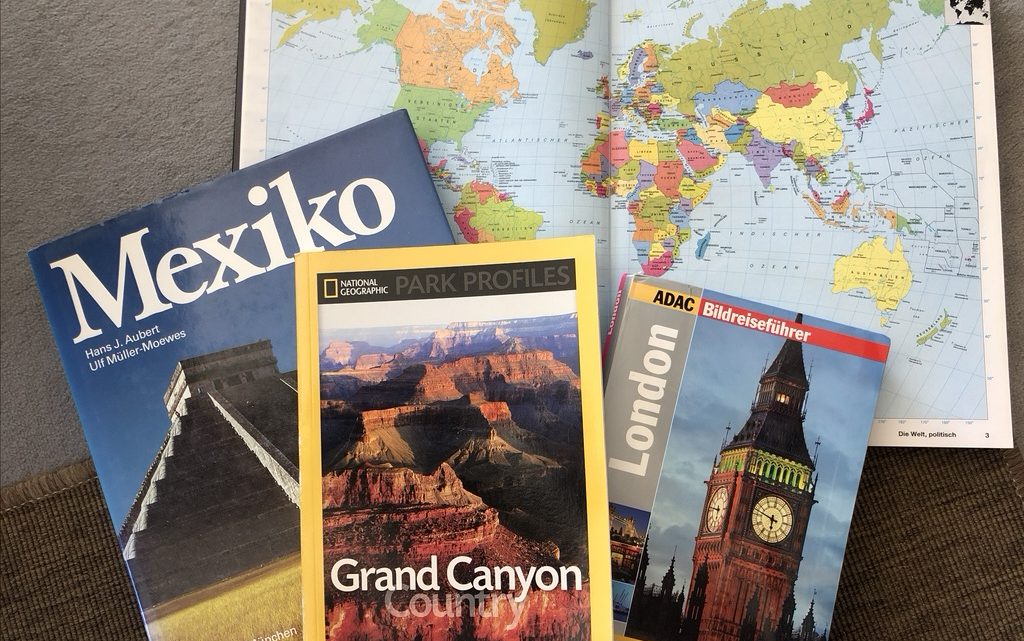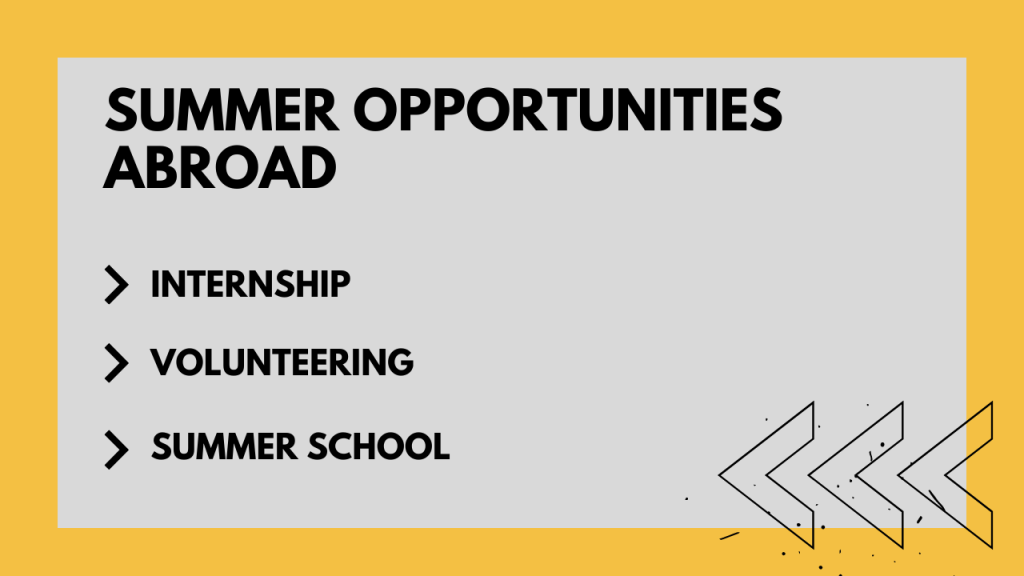In a couple of months, the sun will be shining (hopefully), the Kiellinie will be full of people again and the universities will be empty. Summer break. After two long semesters full of papers, group work and exams the perfect time to get a change of scenery and try something new before it all starts again. Still, for a lot of students the summer break is the perfect time to do internships or get job experience. Why not combine both?
A lot of students want to go abroad, but organizing a trip can be frustrating and annoying if you do not know about all the opportunities. Work & Travel, studying abroad or an Au-Pair program are some options if you have the time for a longer stay abroad and do not necessarily want to make experiences helpful for your career.
This article will introduce you to 3 different options on how you can go abroad this summer while still collecting important job experiences.
To help you choose which opportunity fits best for you, each program is summarized with four factors: duration, expenses, countries, difficulty to plan.
1. Internship
You need an internship for your studies or want to do one to gain experience, then why not do it abroad? It is a great way to prepare yourself for an international work-environment as well as make new international contacts.
A lot of students do not realize that they are also able to attend an internship in a country whose language they do not speak. The language needed mostly for internships is English, but learning the local language is always helpful and also part of an exchange experience.
There are several possible ways to organize an internship abroad. Your two main options are:
1. Through the university. The FH is a great first step to collect important information on how to organize your internship abroad. The international office can either help you with finding internship offers, figuring out which funding programs are available or with the acceptance of the internship, in case you need it for your studies.
You can find a whole site dedicated to internship offers here. Some of those offers are not recent anymore, but they could still give you ideas and you could check the linked website for more current offers.
2. Through an organization. If you want some additional help with organizing your internship abroad you can find help from an organization. When choosing to consult an organization, you do have to pay a fee for their services.
This fee most of the time includes finding an internship opportunity, helping you prepare for the application process as well as helping you figure out your living situation abroad. Most of the time you will have a coordinator in your destination country who will help you with possible questions and connect you to other program participants.
- Duration: 2 months up to a 1 year
- Expenses: Internships might be paid or at least provide you with accommodations. If consulting an organization, you have to consider a service fee. Scholarships and funding are available for an internship abroad.
- Countries: Everywhere
- Planning: Some countries are easier to organize (especially EU), while other countries are more difficult to plan (e.g. USA – the visa you need to work in the USA is only available through an organization)
2. Volunteering
Volunteering might be a great option for you if you want to gain practical experience in your general field of study and want to make a social impact. It is also a good option if you want to try out something new that will help you figure out what you want to do in your career. Volunteering is a very gratifying experience, but you should consider a couple of factors in order to make your stay impactful.
- Volunteering is a great option, if you can stay a longer period of time. Short term volunteering opportunities are mostly less impactful.
- Not all areas of study are equally needed in volunteering – be sure to find a volunteering opportunity which fits your individual interests, so you can still make career experiences. A lot of volunteer options are in those fields: education, computer training, childcare, youth service, public health, marketing, community development, human rights, disabilities, nursing and teaching.
- You don’t get paid. On top of that, a lot of organizations have high organization fees.
- Duration: Volunteering programs can be as short as 3 weeks but can also last as long as you want.
- Expenses: Accommodations are provided most of the time. Depending on the program, there might be high organizational fees.
- Countries: Volunteering programs are available globally.
- Planning: In comparison to an internship you don’t have to go through an interview process or need a work visa. Therefore the difficulty is moderate.
3. Summer school
It is the end of the semester and you still do not have enough from studying? Why not take some courses in summer school abroad. This is also a great option if studying abroad for a whole semester is too long for you. The FH has multiple offers for summer/winter schools in different countries. Offers for the summer 2022:
- St. Pölten UAS (Austria): Creative Media Summer School (27 June – 1 July)
- Dongguk University (Korea): Summer International School (21 June – 5 July) – Unfortunately still online due to Corona
- The Hague (Netherlands): Summer School (4 – 29 July)
- Antwerp (Belgium): Summer & Winter Program (Start 27 June timeframe depending on course)
Next to those offers from partner universities of the FH, you can check out other offers for summer schools for example from the “Deutsche-Amerikanische Fulbright Kommission” or the program “Go-East”. You will find more information on the FH website.
- Duration: Short time frame. Depending on the course you are choosing between 5 days and 3 weeks
- Expenses: Most of the time the expenses of the courses with partner universities will be covered, with exception of e.g. small processing fees. Self-organized summer schools on the other hand could become expensive. Travel & living expenses must be covered.
- Countries: Austria, Korea (online), Netherlands, Belgium (other options possible if self-organized)
- Planning: An application for programs with the FH is necessary. The planning in comparison to other programs is not too difficult. Application deadlines are arriving soon.
Those are three different possibilities to go abroad this summer. To get more information you can always visit the FH website of the international office or make an appointment for a consultation. You can find their website here.
![FHews – [ fju:s]](http://fhews.de/wp-content/uploads/2015/05/fhews_logo2_3B8ACC.jpg)













No Comment